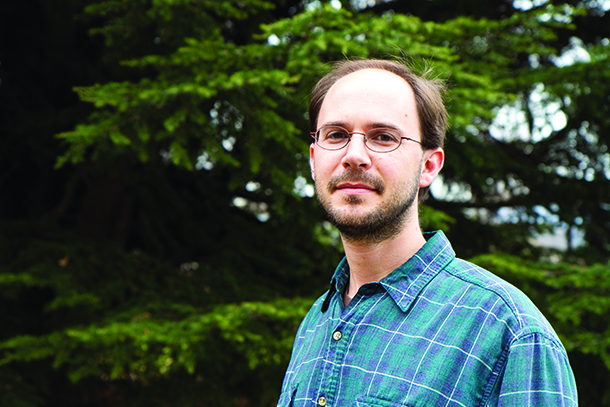The weeks that Nathan Musselman ’00 spent in Palestine in 1998 during his cross-cultural to the Middle East, observing, experiencing and learning from people living under Israeli military occupation, made a tremendous impression on him.
“It was an extremely emotional time,” recalled Musselman in a 2012 interview. He was a sophomore at the time of his trip. “It became very clear to me that to be on the side of the oppressed in this situation was to stand with the Palestinians and their resistance to Israeli occupation.”
And so, soon after finishing his degree in justice, peace and conflict studies, Musselman found himself drawn back to Palestine, where he worked at Bethlehem Bible College and with a Palestinian research institute. He also enrolled at Birzeit University near Ramallah to study Arabic and became involved with the International Solidarity Movement (ISM), a group dedicated to nonviolent action in support of the Palestinian cause.
Since the second Palestinian Intifada began in the fall of 2000, violence had spread across the region as Palestinians and Israelis exchanged terrorist attacks and violent reprisals. In the spring of 2002, the Israeli military surrounded a group of Palestinian fighters and other civilians who had taken refuge in the Church of the Nativity. After the siege continued for a month, the ISM decided to get food and international observers past the Israeli army and into the church.
On May 2, Musselman and other members of the group quickly approached the church from three different directions, successfully reaching the entrance with supplies. While about 10 volunteers actually entered the church, Musselman and the others had intended to escape to continue other actions in Bethlehem. As soon as the soldiers surrounding the church realized what was happening, though, they came at a run and arrested Musselman and everyone else who hadn’t gone inside.
Then ensued, Musselman said, “a very long and confusing series of events” during which he spent more than three weeks in a variety of Israeli prisons, went on a hunger strike and, eventually, was deported from the country. Though, to his knowledge, he was never charged with any crime, he has since been refused re-entry to Israel and doesn’t know if he’ll ever be allowed back.
“It seemed like the right thing to do at the time,” said Musselman, now a program assistant at EMU’s Summer Peacebuilding Institute. “We always have to deal with and accept the consequences of our actions, so I don’t regret it.”
While his arrest in Bethlehem abruptly and indefinitely ended Musselman’s time in Palestine, he went on to spend most of the past decade working elsewhere in the Middle East. He volunteered with the Iraq Peace Team, an organization similar to the ISM dedicated to preventing the second Iraq War through nonviolent action, and spent another year studying Arabic in Syria. Musselman then worked for five years at a university in Sulaymaniyah, in Iraqi Kurdistan, before returning to Harrisonburg in 2011.
“The cross-cultural program at EMU was a life-changer for me,” he says. “I have nothing but gratitude and thanks for that. It’s a great asset for this university.”
